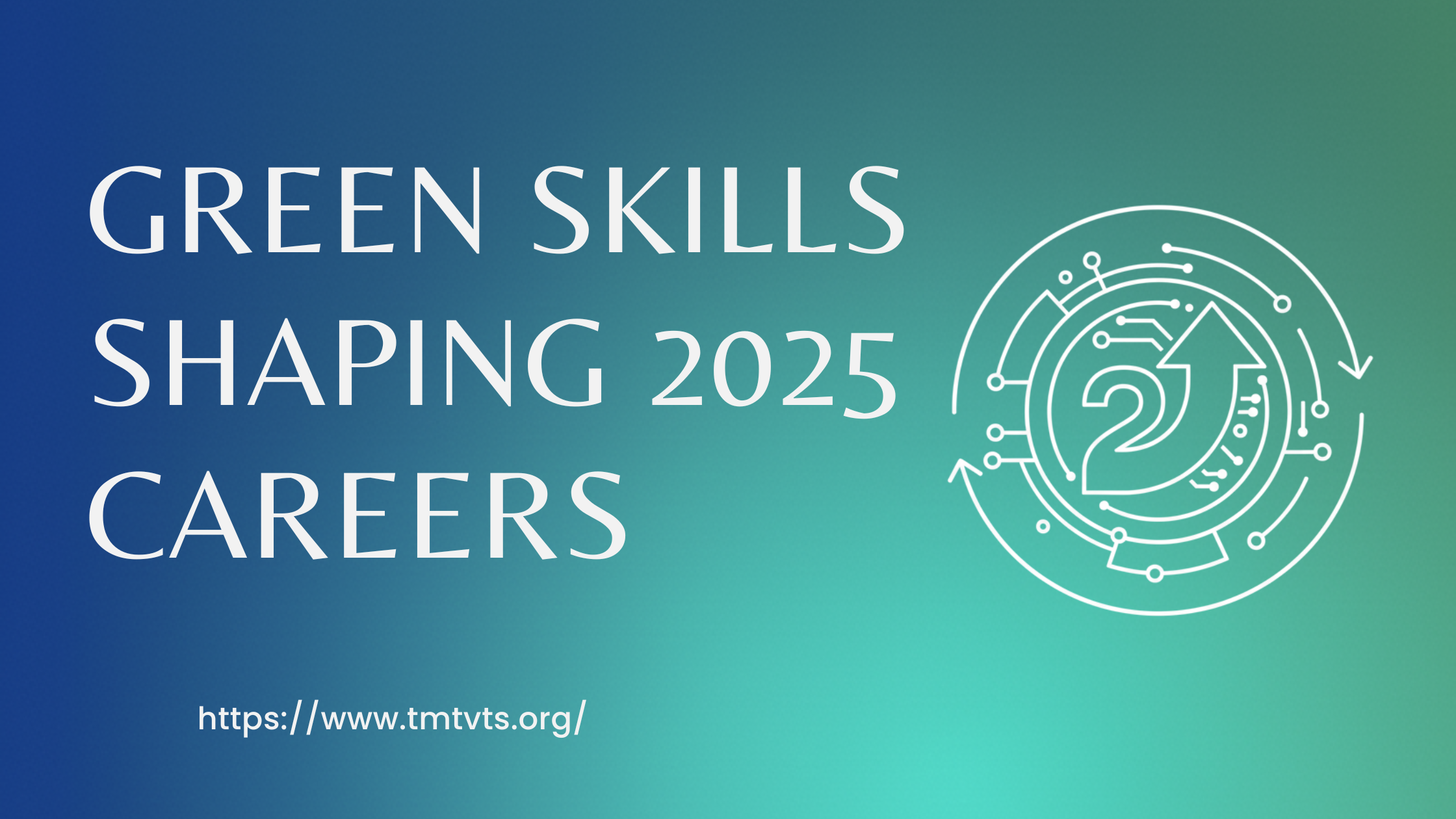The global workforce is experiencing a fundamental transformation. As climate change intensifies and environmental regulations tighten, green skills have evolved from niche specializations into essential competencies across virtually every industry. In 2025, professionals who understand sustainability, renewable energy, and environmental stewardship aren’t just tree-huggers they’re the most sought-after talent in the job market.
The Green Skills Revolution
Green skills encompass far more than knowing how to recycle or install solar panels. They represent a comprehensive understanding of sustainable practices, circular economy principles, environmental impact assessment, and the ability to innovate within ecological constraints. From architects designing net-zero buildings to financial analysts evaluating ESG investments, these competencies are reshaping job descriptions across sectors.
The shift isn’t happening in isolation. Governments worldwide are implementing aggressive carbon reduction targets, corporations are pledging net-zero commitments, and consumers are demanding sustainable products and services. This perfect storm of regulatory pressure, market demand, and genuine climate urgency has created an unprecedented need for green-skilled workers.
Industries Leading the Charge
Energy and utilities remain at the forefront, but the expansion goes far beyond. The renewable energy sector continues its explosive growth, with solar and wind technicians, energy storage specialists, and grid modernization experts in high demand. However, 2025 has seen green skills permeate industries previously considered immune to environmental concerns.
Manufacturing has undergone a dramatic transformation. Supply chain managers now need expertise in circular economy models, production engineers must understand sustainable materials science, and operations directors are expected to minimize waste and optimize resource efficiency. The concept of “produce, use, dispose” has been replaced by “design, use, regenerate.”
Finance and investment sectors now require professionals who can analyze environmental risks, evaluate green bonds, and structure sustainable investment portfolios. Carbon accounting has become as fundamental as traditional financial accounting, with companies needing specialists who can measure, report, and reduce their carbon footprints.
Technology companies are seeking developers who understand green computing, data center energy efficiency, and sustainable software architecture. Even in seemingly unrelated fields like marketing, professionals need to communicate sustainability credentials authentically and combat greenwashing accusations.
The Skills That Matter Most
What specific competencies are employers desperately seeking in 2025?
Sustainability strategy and implementation tops the list. Organizations need people who can translate broad environmental goals into actionable business strategies, measuring progress and pivoting when necessary.
Carbon literacy and climate science have become baseline requirements. Understanding greenhouse gas protocols, scope 1-2-3 emissions, and climate science fundamentals is no longer optional for leadership positions.
Circular economy expertise is transforming product development and business models. Professionals who can design products for longevity, repair, and eventual recycling are invaluable across industries.
Green technology proficiency spans multiple domains—from renewable energy systems and energy management software to environmental monitoring tools and sustainable agriculture technologies.
Regulatory compliance knowledge has become critical as environmental legislation multiplies. Understanding CSRD, taxonomy regulations, and industry-specific environmental standards can make or break business operations.
The Talent Gap Challenge
Despite surging demand, a significant skills gap persists. Many organizations struggle to find qualified candidates, and existing employees often lack the training needed to meet new green requirements. This mismatch has created extraordinary opportunities for those willing to upskill.
Universities and training institutions are racing to catch up, launching specialized programs in sustainability management, renewable energy engineering, and environmental data science. However, many successful professionals are building green skills through online courses, professional certifications, and hands-on project experience rather than traditional degree programs.
Career Pathways and Opportunities
The beauty of green skills in 2025 is their versatility. You don’t need to abandon your current career path you need to green it. A marketing professional can become a sustainability communications specialist. An engineer can focus on sustainable infrastructure. An HR manager can lead corporate sustainability culture initiatives.
Entirely new roles have emerged that didn’t exist five years ago: Chief Sustainability Officers, Carbon Accountants, Circular Economy Consultants, Green Hydrogen Project Managers, and Sustainable Supply Chain Analysts. These positions often command premium salaries due to scarce expertise and critical importance to organizational success.
Entrepreneurial opportunities abound as well. Green skills enable professionals to identify business gaps and launch ventures addressing sustainability challenges from sustainable packaging solutions to climate risk assessment platforms.
Future-Proofing Your Career
For professionals navigating 2025’s job market, developing green skills isn’t just advantageous it’s essential for career longevity. Industries resistant to environmental adaptation face existential threats, while those embracing sustainability are thriving.
Start by assessing your current role through a sustainability lens. Where does your work intersect with environmental impact? What green competencies would make you more valuable in your field? Then pursue targeted learning whether through formal education, online courses, industry certifications, or volunteer projects that build practical experience.
Network within sustainability communities, attend green business conferences, and follow thought leaders in environmental innovation. The green economy rewards curiosity, adaptability, and genuine commitment to environmental stewardship.
The Bottom Line
Green skills are no longer alternative career paths they’re mainstream requirements. As 2025 unfolds, the integration of environmental competencies into traditional roles will only accelerate. The question isn’t whether green skills will shape your career, but how quickly you’ll develop them to stay competitive.
The transition to a sustainable economy represents the greatest economic transformation since the Industrial Revolution. Those who embrace green skills aren’t just securing their careers they’re participating in building a more sustainable and prosperous future for everyone. The opportunity is now, and the demand has never been higher.





